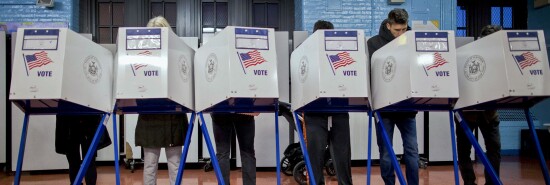
Majority of voters reject the idea of a ‘one-party’ country
Christopher Tremoglie
Video Embed
It’s well known that the nation is politically divided. Almost every day, the news cycle is abundant with stories in which Republicans blame Democrats for the state of the union and vice versa. Public opinion polls are rife with results showing the country is divided on nearly every social and political issue. However, there seems to be one thing that voters from all parties agree on: They reject the idea of a “one-party country,” as Rasmussen Reports pointed out in a survey released on Monday.
According to Rasmussen, “only 15% of voters think the United States would be better off if it had just one political party.” Given the hostilities and political tension, the only surprising revelation from this poll is probably that the number is as high as it is. With Democrats and Republicans continually at each other’s throats, one could logically assume that few, if any, people would want one-party rule, let alone 15% of voters. Conversely, on the flip side, the poll revealed that 71% would not favor a one-party government, while another 14% claimed they were not sure.
WHY CHINA’S DANGEROUS SECOND THOMAS SHOAL ESCALATION MATTERS
Interestingly enough, given their penchant for authoritarianism, as demonstrated during the pandemic with their lack of tolerance for dissent and opposing viewpoints, more Democrats than Republicans favored one-party rule, albeit by a slim margin. The poll showed that 19% of Democrats, compared to 16% of Republicans, felt “we’d be better off with just one party.” Only 8% of voters not affiliated with Republicans or Democrats supported the hypothetical “uniparty.”
Tangentially, it would be curious to poll the sentiments of voters in cities that, while having elections, essentially are under one-party control. For example, Philadelphia has essentially had government by one-party rule since before Elvis became popular. It is heavily Democratic. The last time the city had a Republican mayor was in 1952. Other major cities have similar histories of decades of only Democratic mayors. It would be interesting to see how voters in those cities felt about rule by one party.
The nation was founded on the rejection of an absolute ruler. It’s a core tenet of Americanism. It is encouraging to see a majority agree on something, even if it is as trivial as rejecting a hypothetical uniparty — no matter how ideologically divided the country is.
